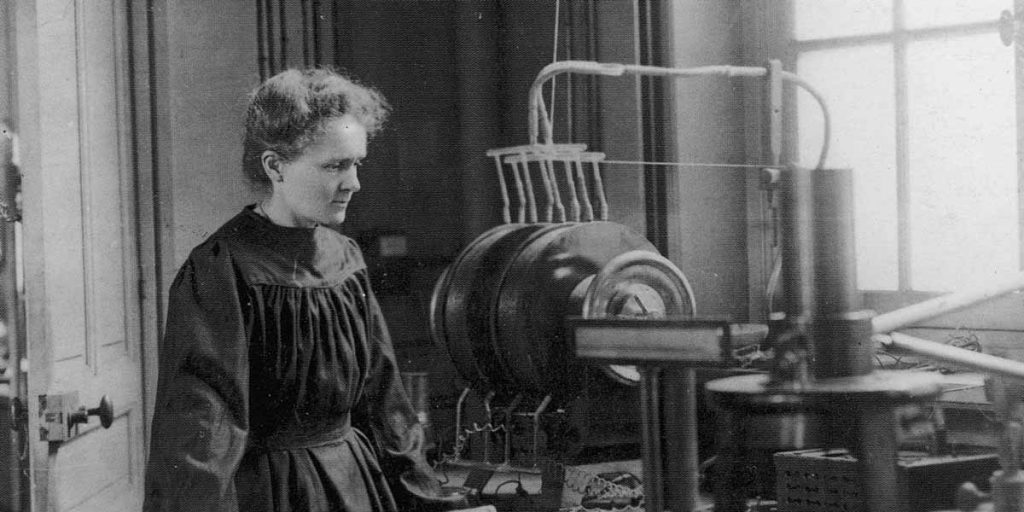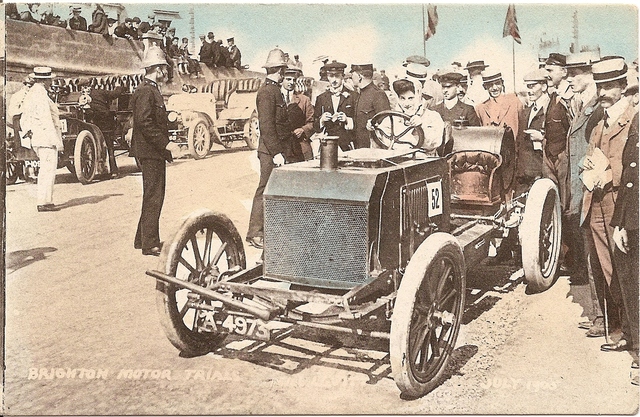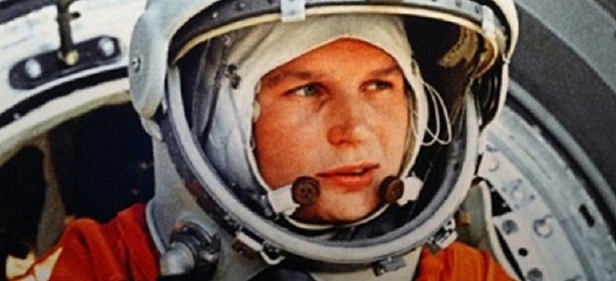
If a female Doctor Who was a big deal, imagine how people reacted to the first actual female doctor
This week, Jodie Whittaker was announced as the new Doctor. The first woman to take on the title role in the long-running BBC show Dr Who. She's in good company – here are six other women who've achieved some pretty special firsts.
Predictably, the reaction to the female Doctor Who news has been pretty mixed. For some people, it's a huge step in the right direction – following in the footsteps of the women-led Ghostbusters reboot and the recent blockbuster Wonder Woman, a female doctor helps boost the representation of women in sci-fi, which is male-dominated.
Then there’s been the normal sexist “nobody wants a Tardis full of bras” crap, along with the people who pretty notoriously just don’t like change – and those who think it just doesn’t fit in with the story to suddenly switch gender. They’re saying a female Doctor Who is just a step “too far”.
The thing is, have been going “a step too far” and getting jobs people don’t think they should for a long time. As the first female Doctor, Jodie Whittaker is in good company. From actual doctors, to actual space travellers, some pretty bold women have been clearing the way for women to get fictional jobs in fictional TV shows for centuries.
To quote the Simpsons: “That seems to be the way the wind is blowing these days! After all, we have female singers, female motorists.”
boy if people are mad about the doctor who casting
— me (@etdragonpunch) July 16, 2017
wait until they find out regular doctors can be women
First woman to receive a medical degree: Elizabeth Blackwell
Elizabeth Blackwell was born in 1820 – nearly 200 years ago. She was the first woman to earn a medical degree in the US, and the first woman to be on the medical register in the UK. She funded her degree herself, working as a teacher to raise the $4000 medical fees. Blackwell worked in both the US and the UK and in 1847 opened the London School of Medicine for Women.
Fast forward almost two centuries to 2012, and there are now more women enrolling in medical school in the UK than men (55 per cent were women). According to the General Medical Council, they expect the number of practicing female doctors to outnumber men at some point between 2017 and 2022.
First woman to win best director Oscar: Kathryn Bigelow
It only took 82 years, but in 2010 Katheryn Bigelow was handed the Oscar for Best Director for her Iraq War movie The Hurt Locker. In total, her film took six awards, including Best Picture and Best Original Screenplay. She was only the fourth woman to ever be nominated.
So some progress, yes – but for women in film, the picture’s still pretty bleak. A recent study shows that women make up 50 per cent of people leaving film school, but from then on the number of women directors dwindles. Just 27 per cent of short films are directed by women, 16 per cent of low budget feature films and 13 per cent of medium budget films. That figure falls to just 3 per cent for films with a budget over £30m. Bigelow is the only woman ever to have won Best Director at the Oscars.
First female racing car driver: Dorothy Levitt

In 1903, Dorothy Levitt became the first British woman to compete in a motor race (or at least a recorded one). She was racing cars at a time when very few people could even drive them. The fact a woman was involved competitively in driving scandalized early 20th century British society. Levitt went on to become an advocate for women driving, she wrote books about it and taught a number of women to drive (including members of the Royal family).
It took well over 100 years, but in 2013 the number of female drivers in both the US and the UK outstripped men for the first time. There have still been very few female racing drivers – in 1977 Janet Guthrie became the first woman to drive in the Indy 500, and there have only ever been five official female F1 drivers.
First female Nobel Prize winner: Marie Curie
Marie Curie is probably the most famous female scientist ever. She was awarded a Nobel Prize for her work on radiation, along with two other (male) scientists in 1903 – the first woman to win one, and the first person ever to win two. She then became the first woman to be a lecturer at the University of Paris, and has a metro station and a whole host of institutions all over the world named after her.
Fact: her name was very nearly left off the award altogether (because she was a woman). It was only after her husband (who co-authored the research) complained that her name was added.
Fast forward to the 21st century and women outnumber men in a number of science subjects at university, but there is still concern about the lack of representation at the top of the industry. Campaigns such as WISE (Women in Science and Engineering) are trying to improve access and participation of women.
First woman in space: Valentina Tereshkova

Valentina Tereshkova was one of five women selected by the Russian Space programme to go into space, as part of a special women’s unit. In 1963 she circled the earth 48 times. Tereshkova went on to have a long career in politics in the Soviet Union, and is still thought of as a hero in Russia today. It took 20 years for the first American woman, Sally Ride, to follow.
A total of 57 women have flown in space and NASA currently has 12 active female astronauts.
First female Prime Minister: Sirima Bandaranaike
In July 1960 Sirima Bandaranaike was elected Prime Minister of Sri Lanka (then called Ceylon), making her the first female Prime Minister of any country in the world. She served as Prime Minister of Ceylon and Sri Lanka three times, 1960–65, 1970–77 and 1994–2000, and was a long-time leader of the Sri Lanka Freedom Party.
Since then, there have been over 70 female presidents and prime ministers around the globe.



